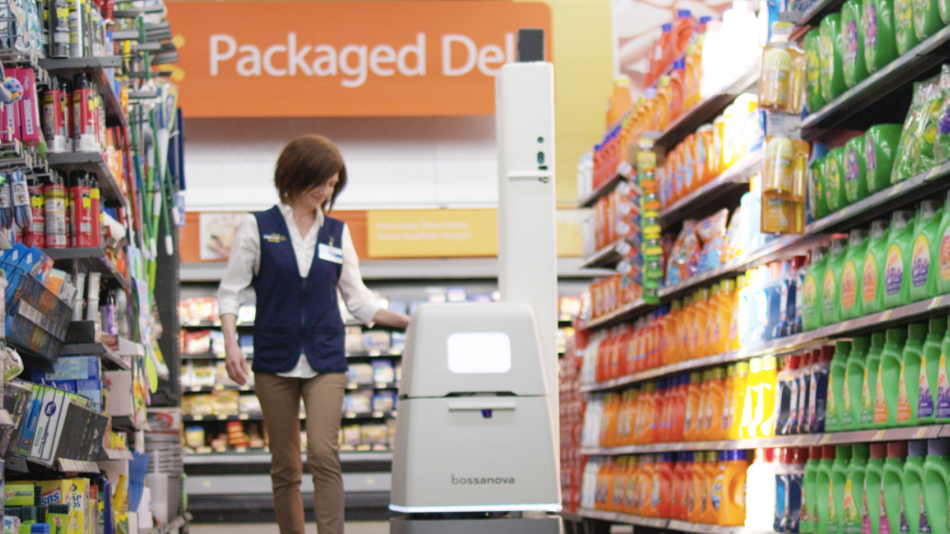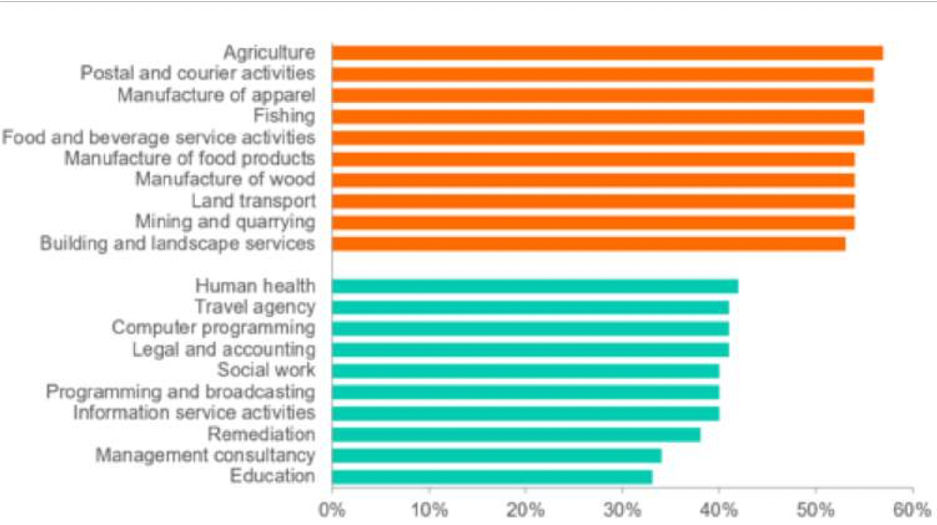 Automation will disrupt the labour market. Although many workers feel the threat of automation acutely, only 14% of jobs were estimated to be at high risk of automation in 2018. The risk is distributed unevenly across sectors, negatively affecting low skilled workers and industries more than high skilled.
Automation will disrupt the labour market. Although many workers feel the threat of automation acutely, only 14% of jobs were estimated to be at high risk of automation in 2018. The risk is distributed unevenly across sectors, negatively affecting low skilled workers and industries more than high skilled.
But automation is likely to lead to a higher quality of life. Robots are likely to take over mundane tasks, freeing up workers to do more fulfilling jobs or enjoy more leisure time. Work-life balance is expected to improve for many.
Some skills will remain uniquely human. Machines are now capable of judgement and basic decision making, bringing up the question of which skills will remain uniquely human. As even creativity is mastered by robots, true empathy is likely to become increasingly valuable as a human skill.
AI brings new levels of convenience. Artificial intelligence allows for accurate personalisation, immediate delivery, real-time feedback… all of which enhance the customer experience and drive consumer demand.
Automation will help focus on experiential interactions. While automated systems take charge of some of the more physical work that is involved, this frees up the existing employees to focus on customer experience and ensuring that the consumer is constantly satisfied.
—

1. Checked out during checkout
Several automation technologies are enabling brands to automate payments to the point that they almost feel invisible. Automated shopping carts, biometric payments and even smart scanning sensors. These systems bring benefit to both parties: for the consumer, there is no need to wait in line, or repeatedly enter credit card information – allowing for a quicker and more seamless process. For brands, when the POS is automated, it reduces operating costs, allows for greater personalization at checkout, and streamlines their purchase journey.
2. Walmart’s in-store automation
In April, Walmart announced the rollout of technology like autonomous shelf scanners, floor cleaners and unloaders, and Pickup Towers designed to help consumer collect online orders. This will not only improve the customer experience, but also increases scale and round the clock fulfilment of orders.
(Source: Mashable- Walmart Robot)

1. Fear of technology
Studies having been pointing to the fact that advancements in AI and machine learning have given very real reasons for job redundancy. One specific insight that came about was that 46% of jobs were at risk of cutting resources by 2030. Agriculture was the highest ranked when looking through the lens of average possibility of automation (graph on the right).
(Source: Foresight Factory)
2. Shift with the tides
Due to this shift in standard operating procedures of businesses, there have been pushes to discover new types of roles that businesses may need. A 2018 PWC report highlighted that as many as 85% of jobs that exist in 2030, have not even been invented yet. Brands that wish to become thought-leaders in this field or work towards helping figure out peace-of-mind for the consumer have an opportunity to start engaging now, as this would allow for an association of trust to be built towards them in this emerging space.
3. Educate & Elevate
Educating and focusing on honing specific human skills that cannot as easily be replicated by machines is the way moving forward for individuals. A study by McKinsey shows that individuals are focusing more on roles that revolve around creativity, critical thinking & complex decision making. The study indicates that the aforementioned roles will be expected to increase by 15-20% between 2016 to 2030.
Empathy is believed to be the last truly human skill which will not be able to be completely replaced. The need for social and emotional connect is something that will still hold value in the years to come as it is one of the cornerstones of thinking when humans wish to relate to one another. The case of Morgan – a trailer for a movie that was created entirely by an AI software – has shocked and wowed audiences but also shown them the limitations of machines in this aspect.
Want to know more about Automation and chatbots and how your brand can streamline it marketing process? Take a look at our Social Media Capabilities or get in touch with us!





